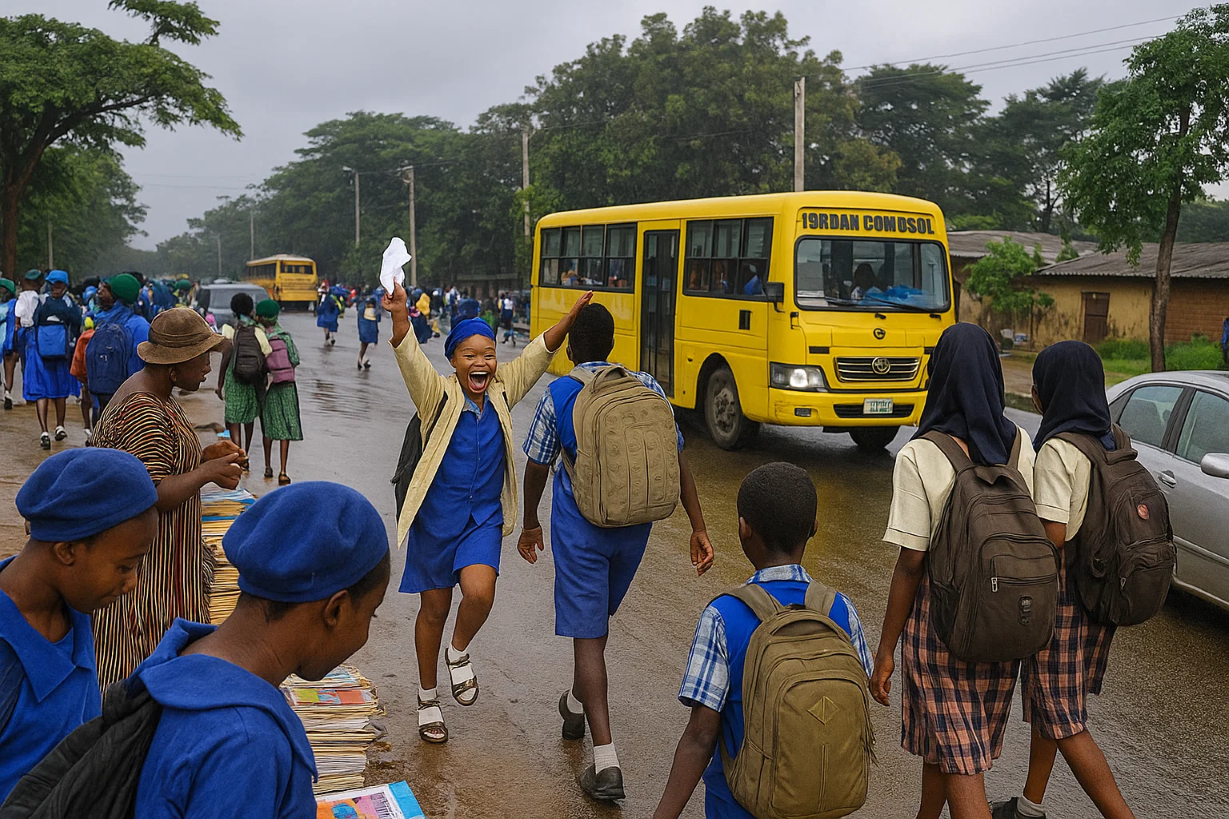EDUCATION

NIGERIAN PARENTS GROAN AS SCHOOL FEES DOUBLE AMID INFLATION
As the 2025/2026 academic year begins across Nigeria, many parents are facing renewed hardship as the cost of education continues to climb.
The reopening season has triggered anxiety and frustration for families already struggling with the rising cost of living.
Parents are grappling with steep increases in tuition, alongside the added expenses of textbooks, uniforms, and other school essentials.
This comes at a time when inflation remains high. According to the National Bureau of Statistics (NBS), inflation rose to 21.88 percent in July 2025, leaving many households unable to meet basic needs, let alone afford higher education bills.
Some parents of children in private schools lamented that the frequent increments in school fees have become unbearable, while others are reluctantly settling for poorly equipped public schools.
A visit to public primary and secondary schools in Abuja and surrounding areas revealed overcrowded classrooms, dilapidated facilities, and demoralized teachers struggling to cope.
For Ngozi Okoro, a single mother of two, the dream of keeping her children in a prestigious private school has become nearly impossible. She explained that her petty trading and occasional support from relatives had sustained her for years, but a 30 percent fee hike last session forced her to consider transferring her children.
“I tried everything I could; I worked extra hours, borrowed from friends, but it was never enough. I had to choose between feeding my children and paying their school fees,” she said, adding that she is now preparing to move them to a more affordable school.
Another parent, Abuh Ameh, a father of four, shared his struggle:
“Every term, the school sends reminders about fees. I feel ashamed when I can’t pay on time. Sometimes my children are sent home, and they cry because they don’t want to miss classes. I don’t know how I’ll cope this session,” he lamented.
In extreme cases, families are resorting to desperate measures to keep their children in school. Some have turned to crowdfunding on social media, while others are selling personal belongings to raise money.
One widower, Nuhu Ahmed, said he had to sell cherished possessions to secure his children’s education.
“I sold some of the things I valued most, just so I could pay their fees and buy the books they needed,” he admitted.
Education stakeholders warn that the current struggles could worsen Nigeria’s education crisis. Expert Michael Akor noted that the country already has over 17 million out-of-school children—one of the highest figures in the world—stressing that the situation undermines human capital development and weakens the future workforce.
“Education should be a ladder out of poverty, but when it becomes unaffordable, it only drives families deeper into the poverty cycle,” he cautioned.
Meanwhile, public affairs analyst Mazi Christian Idoko advised parents to live within their means when choosing schools for their wards.
“Some parents still insist on enrolling their children in schools far beyond their financial capacity, only to end up seeking help from others. My advice is simple: place your children in schools you can afford. This will reduce pressure and ease family tension,” he said.
"This represents a significant development in our ongoing coverage of current events."— Editorial Board









